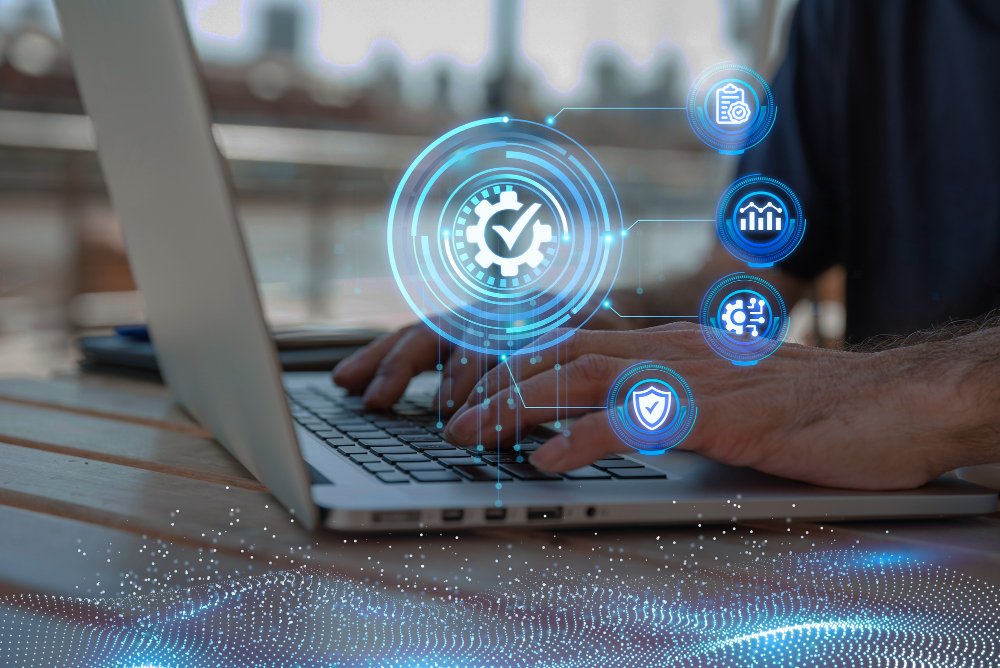Table of Contents
We are no longer on the brink of digital transformation—we are immersed in it. From the moment we wake up and check our smartphones to the final scroll before sleep, digital technologies dictate how we live, work, and interact. This digital impact is omnipresent, infiltrating industries, reshaping economies, redefining relationships, and revolutionizing communication.
In this article, we delve deep into the multi-dimensional digital impact that is redefining the modern world.
Digital Transformation in Business: Innovation, Automation, Domination
The digital revolution has forced businesses to pivot or perish. Traditional brick-and-mortar operations are increasingly giving way to agile, tech-enabled enterprises that harness the power of AI, machine learning, cloud computing, and big data.
Customer Experience Elevated
With tools like CRM software, chatbots, and predictive analytics, companies now offer hyper-personalized customer experiences. User behavior data allows businesses to anticipate needs and preferences with surgical precision, boosting conversion rates and customer loyalty.
Operational Efficiency and Automation
Automating routine tasks with Robotic Process Automation (RPA) not only slashes operational costs but improves accuracy and speed. Logistics, HR, and accounting departments are being reimagined with digital workflows and cloud-based management systems.
E-Commerce Ascendancy
Online marketplaces have disrupted retail forever. Giants like Amazon, Alibaba, and Shopify have turned digital storefronts into the new commercial battleground. With mobile commerce on the rise, businesses are optimizing for mobile-first experiences to meet consumers where they are.
The Digital Workplace: Remote, Collaborative, Productive
Remote work isn’t just a trend—it’s a new standard. Platforms like Zoom, Slack, and Microsoft Teams have become digital lifelines for collaboration.
Digital Skills: The New Currency
Modern employees must be fluent in digital tools. Skills in data analysis, cloud platforms, cybersecurity, and digital marketing are now as essential as reading and writing. Companies are investing heavily in upskilling and e-learning platforms to stay competitive.
Cloud Computing and Accessibility
With the cloud, businesses have achieved scalability and real-time access to information. This enables teams to collaborate across continents, breaking down the traditional limitations of office-based work.
Social Media: The Engine of Influence and Interaction
Platforms like Instagram, Facebook, LinkedIn, and TikTok have altered how we perceive reality, communicate, and build personal and professional brands.
The Power of Digital Communities
Social media gives rise to online tribes—groups connected not by geography but by interest. These communities wield significant influence, shaping consumer trends, political discourse, and public opinion.
Influencer Marketing and Brand Visibility
Micro and macro-influencers leverage their platforms to market products with authenticity and relatability. Brands are shifting their advertising budgets to collaborate with influencers who can deliver targeted engagement far better than traditional ads.
Education Reimagined: Learning Beyond Borders
Digital technology is democratizing education. With platforms like Coursera, Khan Academy, and edX, learners from around the globe can access Ivy League content for free or at low cost.
Adaptive and Interactive Learning
AI-driven platforms adapt to individual learning styles, offering tailored educational pathways. Gamification and interactive modules keep students engaged, while virtual classrooms make geographic boundaries irrelevant.
EdTech and Accessibility
For underprivileged regions, mobile education apps and offline-compatible content bring education to places where traditional schools can’t. This closes the digital divide and opens up new horizons.
Healthcare Goes Digital: Telemedicine and Beyond
The digital impact on healthcare is life-saving. With telemedicine, patients consult doctors remotely, avoiding long travel and wait times. AI is being used to detect diseases earlier, while wearable tech like Fitbit and Apple Watch tracks health in real time.
Electronic Health Records (EHRs)
Gone are the days of paper files. EHRs enable seamless sharing of patient data among healthcare providers, improving diagnosis accuracy and continuity of care.
AI in Diagnosis and Research
AI-driven platforms like IBM Watson Health process vast medical data sets to help doctors identify treatment options and predict outcomes. The future of medicine is as much about algorithms as it is about anatomy.
Finance in the Digital Age: Smart, Secure, Seamless
From mobile banking to cryptocurrency, the financial sector is undergoing a digital metamorphosis.
Fintech Innovation
Apps like Revolut, Robinhood, and Stripe are redefining how we save, invest, and transact. Peer-to-peer lending, robo-advisors, and AI-driven fraud detection are making finance smarter and more secure.
Blockchain and Transparency
Blockchain technology offers unprecedented transparency and immutability, which are revolutionizing everything from financial audits to supply chain tracking.
Cybersecurity: Safeguarding the Digital Frontier
As the digital impact grows, so does the threat landscape. Cybersecurity is no longer optional—it’s foundational.
Rising Threats, Smarter Defense
Cybercriminals are employing AI just as businesses are. This necessitates advanced solutions like zero-trust architecture, behavioral analytics, and multi-factor authentication.
Privacy and Data Governance
Consumers demand data protection and transparency. Regulatory frameworks like GDPR and CCPA are setting the stage for a privacy-centric digital future.
Environmental Impact: Greener Through Digital Innovation
While technology has its energy demands, it also offers powerful solutions for sustainability.
Smart Cities and IoT
Internet of Things (IoT) sensors in smart cities monitor air quality, optimize energy use, and reduce waste. Digitally integrated urban planning leads to more sustainable living environments.
Green Tech and Digital Twins
Digital twins of manufacturing systems allow businesses to simulate and optimize resource use, reducing carbon footprints significantly. AI-led energy management systems ensure buildings use only what they need.
Conclusion: Embracing the Digital Future
The digital impact is no longer a forecast—it’s our reality. Embracing digital transformation is essential for individuals, businesses, and nations alike. It offers efficiency, innovation, sustainability, and inclusivity, but also requires mindful governance, ethical implementation, and digital literacy.
If we harness its power responsibly, the digital world promises to be one where opportunities are limitless, borders are irrelevant, and progress is exponential.


